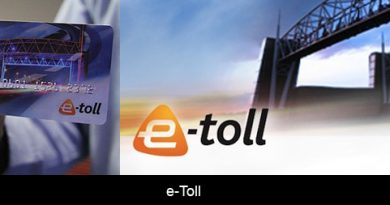South African insurance terms explained for first-time insurance purchasers!
Normally young adults are classified as high risk and are liable to pay respectively more. Insurance in general may seem complex for first time buyers. Here is an insurance cheat-sheet we have compiled to make your journey a lot easier:
HOW INSURANCE WORKS
Insurance is a very old concept. It all started when merchants divided their cargoes between each other’s boats. That way, if one ship sank, no merchant lost everything. They only stood to lose a small portion. Modern insurance is still based on this idea: a group of people come together to share their risks. Today you can buy insurance to protect you and your property from financial loss for almost anything that can happen unexpectedly or accidentally
HOW INSURANCE WORKS
If your house burns down, would you be able to build another one? Probably not. But if you buy an insurance policy from us, you share your risk with our policyholders. You and the other policy holders pay premiums into a pool. We invest the pool of money securely and use it to pay for your claims and the claims of others. Your policy is the contract that you have taken out with us to protect you under agreed terms.
HOW PREMIUMS ARE CALCULATED
Whether you are new to insurance or shopping for a new insurer, this is probably the part you are most interested in. Insurance rates, called premiums, are based on risk, or the potential that someone will make a claim. The greater the risk that we will have to pay, the higher the premium. The lower the risk, the lower the premium. To set rates, we study the claims history of groups of people with similar characteristics and then add information about your particular history to determine the exact premium.
When you buy insurance for your household contents, one of the questions we will ask you is: Where do you live? We will then look at the crime rates for your specific area. If it has a low crime rate, the chances of a burglary decrease and your premium will reflect the lower risk. This is only one of the factors that can impact your premium. For instance, if you have security measures like an alarm system in place, it reduces your risk and your premiums. Of course, it can also work the opposite way.
HOW A CLAIM WORKS
Once you make a claim, we gather the facts and review your policy to see if you are covered against the loss.
If everything is in order, we settle your claim. To prevent fraud and protect all policy holders, we confirm that losses were not deliberate and that the information you provided was correct. It is important to keep your details up to date. If you insured your car while living in an area with a higher crime rate, we calculated your risk and premiums based on that fact. If you have since moved to an area with a lower crime rate, then
your premium should decrease. For your own benefit, and as part of the contract requirements, you should let us know of any changes.
EXCESS PAYMENTS EXPLAINED
When you look at an insurance quote, you will quickly notice an excess. Make sure you understand exactly what this excess payment is and how it works. This will help you avoid unnecessary surprises in your claim’s future.
WHAT IS AN EXCESS?
An insurance excess is the amount you pay out of your own pocket when you make an insurance claim. Insurers sometimes also call it the “first amount payable”. Why do you have to pay? Isn’t that what insurance is for? There are several reasons for an excess. One of them is that it discourages fraudulent claims. Another is that it prevents people from making several small claims. Lots of small claims will make insurance more expensive for everyone. So, excess is a way of protecting all policyholders.
THE DIFFERENT TYPES OF EXCESS PAYMENTS
It is important to know that there are different types of excess payments. The most common types are compulsory excess (a mandatory amount set by the insurer) and voluntary excess (an amount you can opt to pay at the time of a claim). We recommend you read your policy carefully to see which excesses are applicable to your specific policy.
How much will my excess cost?
The cost of your excess is decided when you take out your insurance. We determine the compulsory excess and you determine the voluntary excess. Why should you consider paying a voluntary excess? The higher your excess is, the lower your premium tends to be; the lower your excess is, the higher your monthly premium.
Things to remember
1. Whatever voluntary excess you decide on in the end, please make sure you can afford it when you have to claim.
2. Your insurance is unique to your needs. That is why it is crucial that you read your policy carefully to understand all your specific excesses.
3. If you are still unsure about your excess payments, why not get in touch with us through our website, app, Facebook or
4. Contact number? We deal with these policies daily and are really good at explaining the details.




